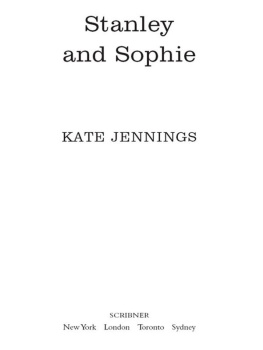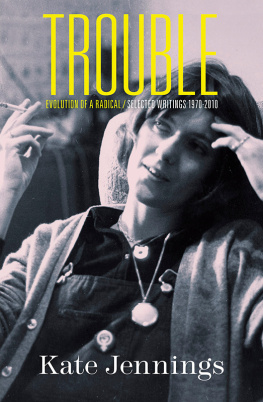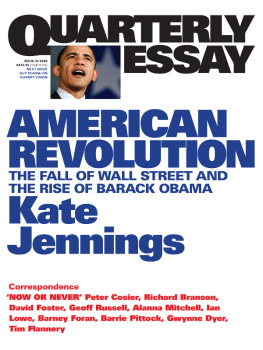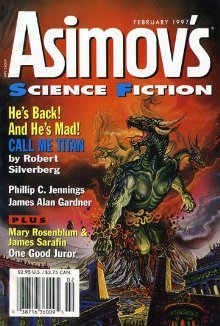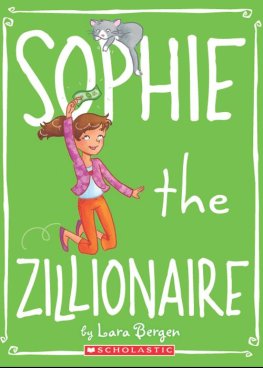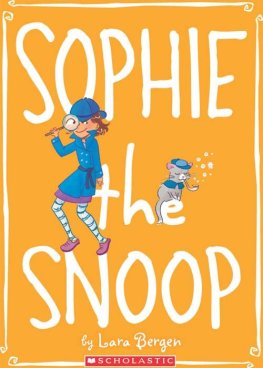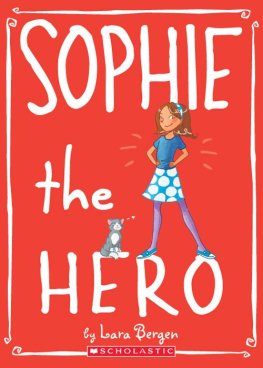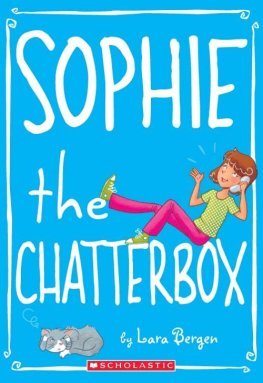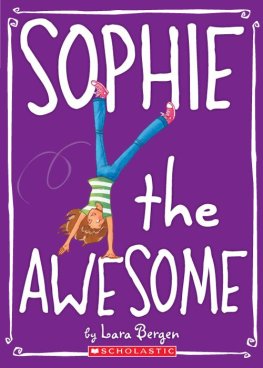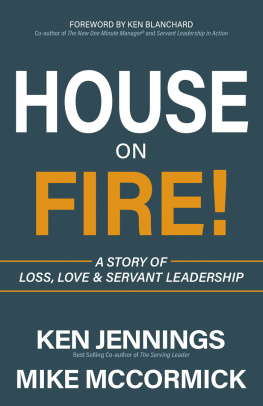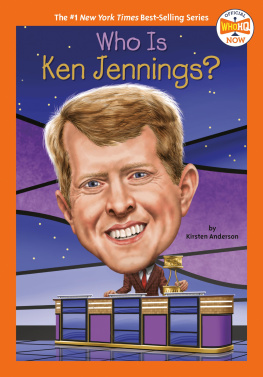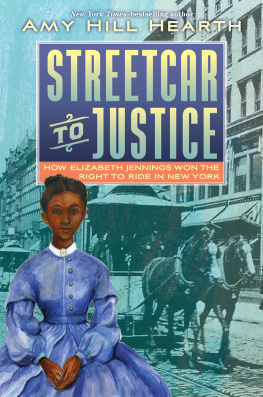Kate Jennings - Stanley and Sophie
Here you can read online Kate Jennings - Stanley and Sophie full text of the book (entire story) in english for free. Download pdf and epub, get meaning, cover and reviews about this ebook. year: 2008, publisher: Scribner, genre: Non-fiction / History. Description of the work, (preface) as well as reviews are available. Best literature library LitArk.com created for fans of good reading and offers a wide selection of genres:
Romance novel
Science fiction
Adventure
Detective
Science
History
Home and family
Prose
Art
Politics
Computer
Non-fiction
Religion
Business
Children
Humor
Choose a favorite category and find really read worthwhile books. Enjoy immersion in the world of imagination, feel the emotions of the characters or learn something new for yourself, make an fascinating discovery.
- Book:Stanley and Sophie
- Author:
- Publisher:Scribner
- Genre:
- Year:2008
- Rating:5 / 5
- Favourites:Add to favourites
- Your mark:
- 100
- 1
- 2
- 3
- 4
- 5
Stanley and Sophie: summary, description and annotation
We offer to read an annotation, description, summary or preface (depends on what the author of the book "Stanley and Sophie" wrote himself). If you haven't found the necessary information about the book — write in the comments, we will try to find it.
Stanley and Sophie — read online for free the complete book (whole text) full work
Below is the text of the book, divided by pages. System saving the place of the last page read, allows you to conveniently read the book "Stanley and Sophie" online for free, without having to search again every time where you left off. Put a bookmark, and you can go to the page where you finished reading at any time.
Font size:
Interval:
Bookmark:
K ATE J ENNINGS , a poet, essayist, and novelist, grew up in the Australian Outback. She attended the University of Sydney in the late 1960s, where she gained notoriety as a feminist activist. She moved to New York City in 1979. Her novel Snake was a New York Times Notable Book of the Year, as was Moral Hazard, which was based on her experiences as a Wall Street speechwriter. Her work has been in contention for the Booker, IMPAC, and Los Angeles Times literary prizes. In her native country, she has won the prestigious Christina Stead and Adelaide Festival prizes and was honored with the Australian Literature Society Gold Medal.
POETRY
Come to Me, My Melancholy Baby
Mother, Im Rooted (editor)
Cats, Dogs & Pitchforks
STORIES
Women Falling Down in the Street
NOVELS
Snake
Moral Hazard
ESSAYS
Save Me, Joe Louis
Bad Manners
Joe Cocker, the rock star, was underestimated, even in his heyday. He had the voice of an angel and the appearance of a mental hospital patient. His signature song, unless you count She Came in Through the Bathroom Window, was the antiphonal Lennon-McCartney tune With a Little Help from My Friends, which Cocker made his own by using waltz time and incorporating chorics with raw rock, much as the Rolling Stones did in You Cant Always Get What You Want. My favorite part: Cockers girl group carols, Do you need anybody? and Cocker confesses with distinctly manly candor, I need someone to love. Then the girls ask, a cappella, Would you believe in a love at first sight? and he answers, Im certain that it happens all the time. I always shake my head at this. Doubtful. Very doubtful.
Ive been insanely, destructively in love several times in my life, the details of which Id rather not remember. (Neither adverb is an exaggeration; such was my derangement that certain people still walk out of a room when I walk into it. My excuse: I was young; it was the sixties; derangement, courtesy of R. D. Laing, had cachet.) And I was married for many years to a man for whom, I always said, I would walk a crooked mile. But love at first sight? No. The only time Ive fallen in love at first sight was with dogs.
The first was Stanley, an aristocratic alpha male border terrier. Best of breed, pure princeling. (Kennel name: Bramblebee Borage, out of Wizard Notice of Bramblebee and Faithful One of Bramblebee.) The second was Sophie, a streetwise, scrappy, orphaned alpha female, also a border terrier, not to be confused with a border collie, an altogether different kind of dog. In my love for these two dogs lies a tale about human need, the kind that blots out all sensein this case, the sense of having two rivalrous terriers with more volatility and energy than the ocean in a New York City apartment. Human need immense subject.
And because Stanley came into my life in 2001 and Sophie in 2004, its a tale, tangentially, about Manhattan in those first confounding, politically charged years of the new millennium. Years when our lives were a rhubarb of noisy emotion: a devils chorus of fear, blatting rage, birring anxiety, tweedling incredulity, roupy sorrow.
New York is a city of dogs. A vast poochdom. (Eight million people, five million pets, a high proportion of them dogs.) If you were to idle on my streetEast Seventy-secondfor only a short while, you would witness a cavalcade of dogs, from miniature to massive, in the singular, plural, and excessively plural, dogs in bulk considered not over the top or even eccentric, such as the eight King Charles spaniels, more gaggle than pack, who issue from the building next to mine.
In the early-morning hours, youd see dog owners dressed for work taking their charges around the block to do their business, the owners brisk and impatient, the dogs put upon and dawdling. Also abroad are the dedicated dogs-as-a-way-of-life crowd, a social club of sorts, a clique, for they all know one another, conversing with Woody Allen earnestness but rarely, to judge from my interactions with them, his humor. They wear fanny packs and carry water bottles, and their dogs are usually largeboxers, mastiffs, Rhodesian ridgebacks, Afghan hounds, Dobermans, Great Danesand theyre headed toward Central Park, where dogs are allowed the courtesy of being off their leashes before nine A.M . Youd see the nine-to-fivers again in the evening hours, more relaxed, taking deep breaths, snatching moments away from the claustrophobia of domesticity, allowing their dogs to sniff at will, with the heaviest traffic at ten P.M ., when prime-time telly finishes, the men among them smoking fragrantly stinky cigars, verboten in the apartment.
Around eleven A.M ., the first of the professional dog walkers can be sighted, the boutique kind who take on only one or two dogs at a time and charge a bundle, as well as those who work in pairs with up to ten apieceurban armadasone walker to stay with the dogs at street level while the other fetches or delivers a client to or from an apartment. You might also spot dogs in the care of maidsthose yappy King Charles spaniels are usually shepherded by a particularly unsmiling housekeeperor off-duty doormen earning a few extra bucks. And then there are those who work from home and can walk their pooches whenever they like. Writers such as me, for example. This last group probably wouldnt see the light of day if not for dogs.
While you will see every breed of dog listed with the American Kennel Club, you wont see many mongrels or, as we call them in my native Australia, bitsas: bits of this and that. Here, those of us who might be characterized as bleeding-heart liberals are more likely to apply to a breed rescue organization for a dog than to find one at a pound. That way we get to salve our social consciences and have a classy dog at the same time. Indeed, you can tell a lot about New Yorkers from their dogsas with everything else, we make statements with them, purposefully telegraphing information about our aspirations, status, and, yes, politics through our choice of breed.
We acquire dogs for a number of reasons, some valid, such as valuing their companionship, and some dubious, such as using them as a fashion accessory, deploying them as pickup bait, or completing a Madison Avenue idea of what constitutes the perfect family. New York City dogs and their owners often resemble each other, much as they do elsewhere in the world, although the effect is heightened when the dogs are dressed like their owners in color-coordinated outfits. My favorite duo in our neighborhood is a woman and her miniature poodle, both coiffed to a fare-thee-well, who, on rainy days, are dressed in shiny white slickers artfully finished with pink kerchiefs around their necks. But the dogs in this town dont just resemble their owners; they act like them. If its possible for a dog to have attitude, in the sense of a studied, defiant approach to ones environment, then New York City dogs have it in spades.
Up until Stanley and Sophie, my ideas about dogs were unsentimental and pragmatic, and I was sniffy about people who werent like-minded. In fact, I worked hard not to succumb to any form of sentimentality. The eighth deadly sin. BabiesI didnt coo over them. The words cute and adorabledidnt use them. Doggies in the windowwalked straight on by. Little Women never read it. Crying in movieshell no! Call me cold. Actually, call me vinegary. Taking W. C. Fields as a role model was amusing when I was young but had hardened over the years into an unattractive default stance.
Id grown up on a farm with sheepdogsdogs with a job. Collies and kelpies, they were treated as workers, housed in kennels made from corrugated iron that were well away from where we lived, near the shearing shed, with no concession to the weather, which in the winter was cold enough for ice to form on puddles and dams and in the summer hot enough to make the lead fall out of pencils. If you were to question these Spartan conditions, my father would tell you deadpan, eyebrows raised a fraction, that it didnt kill themthe dogs were always alive in the morning. A discarded hessian wheat bag on the dirt floor of the kennels: That was permissible. Wouldnt want the dogs turning into sissies. When these dogs grew old and arthritic, they were retired under a rainwater tank where it was blessedly shady, sweetly cool. When their teeth fell out, my father, as did his father, took them to the back of the farm and shot them; you never asked someone else to dispatch them.
Font size:
Interval:
Bookmark:
Similar books «Stanley and Sophie»
Look at similar books to Stanley and Sophie. We have selected literature similar in name and meaning in the hope of providing readers with more options to find new, interesting, not yet read works.
Discussion, reviews of the book Stanley and Sophie and just readers' own opinions. Leave your comments, write what you think about the work, its meaning or the main characters. Specify what exactly you liked and what you didn't like, and why you think so.

